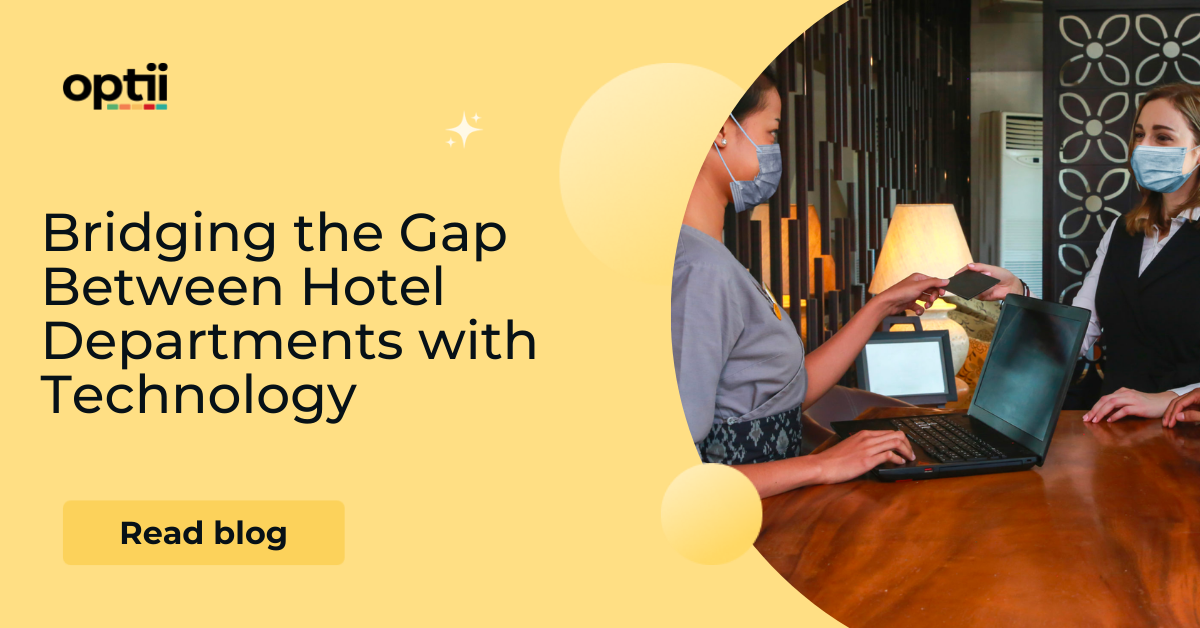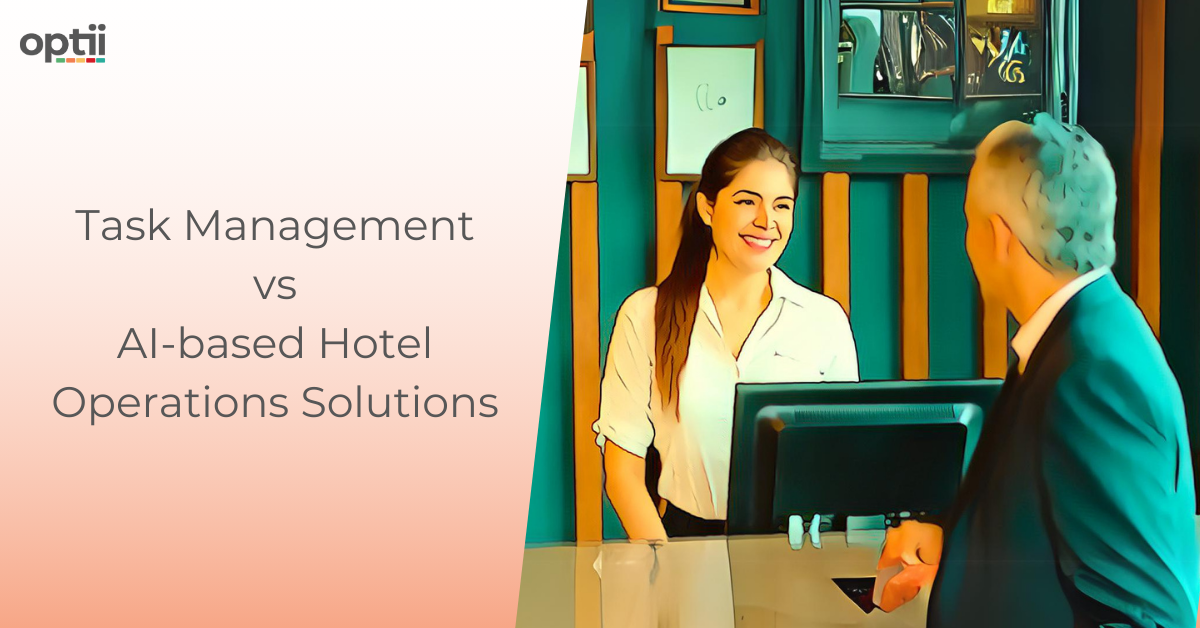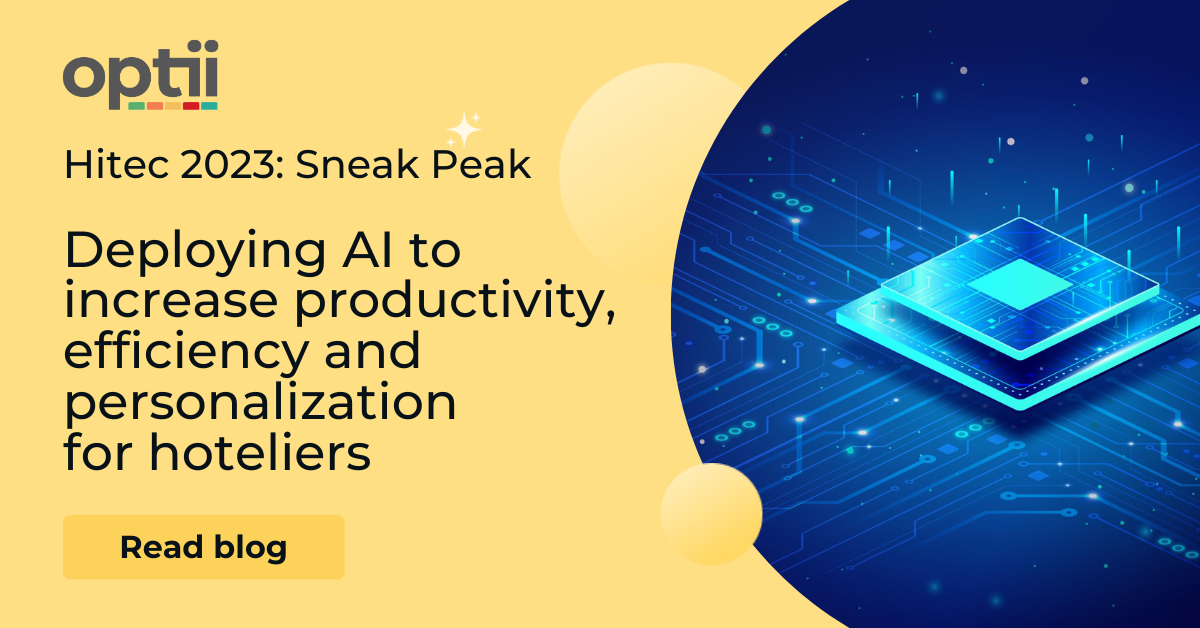In the fast-paced world of hospitality, effective communication and interconnectivity between hotel departments are essential features of running a smooth operation and delivering exceptional guest experiences. Behind the scenes, numerous departments work together to ensure the hotel machine keeps running at an optimal level. However, hotel staff teams often find themselves fragmented into silos, relying on a patchwork of outdated communication technologies not fit for the purpose of keeping them readily updated on tasks, guest status and where their colleagues are in the property. This hinders synergy and, as a consequence, efficiency.
It is a common misconception that technology robs hotels of the ability to provide the personal, human touch. In reality, its purpose and function is to foster human connection and enhance collaboration among departments. Let’s explore how technology bridges these important gaps to promote seamless communication and teamwork for optimal performance.
Front Desk to Housekeeping
The relationship between the front desk and housekeeping is arguably the most crucial line of communication in a hotel. Given the constant influx of guests and the need to maintain clean and prepared rooms, an open and active channel of communication is vital for the hotel's success. Housekeepers communicate essential information to the front desk, such as guest departures, room cleaning updates, maintenance issues, or when a room requires more time for cleaning than anticipated. Conversely, the front desk informs housekeepers about cleaning priorities, unoccupied rooms, or early guest arrivals that necessitate expedited cleaning.
Thanks to Property Management System (PMS) technology, housekeepers can stay connected with the front desk, ensuring rapid and direct flow of information. Unlike traditional methods of communication, digital platforms minimize the risk of lost or misunderstood instructions. Moreover, features like in-line translation eliminate language barriers prevalent in diverse, multilingual hotel teams. In this way technology can not only boost the effectiveness of working teams, but also improve morale and facilitate team bonding by enabling human interactions that otherwise could not take place. Through technology-enabled communication, housekeepers can collaborate seamlessly with their front desk colleagues, providing efficient and targeted service to their guests.
Front Desk to Maintenance
Maintenance teams often work discreetly behind the scenes, and their significance in hotel operations may go unnoticed. However, in an era where guest satisfaction and memorable experiences hold paramount importance, unforeseen issues with bathrooms, air conditioning, or other facilities can significantly impact a guest's stay. A guest experiencing problems such as no running water may choose not to return to the hotel and might leave a negative online review, leading to potential revenue loss.
By leveraging technology, hotels can establish a direct line of communication between guests, the front desk, and the maintenance team. When guests encounter maintenance issues, they can promptly report them to the front desk, who can then alert the maintenance team through mobile devices. This streamlined process enables quick resolution of problems, preventing guest dissatisfaction and the loss of loyal customers. With technology as a bridge, hotels are well-positioned to proactively address maintenance issues, ensuring that guests are never forced to make do with a faulty room and can simply focus on having a great time, not when the shower will start working again!
Housekeepers to Maintenance
Housekeepers, being the team members who most often enter hotel rooms, usually serve as the first point of contact to identify maintenance issues. They spend their time meticulously cleaning and preparing rooms, giving them an opportunity to spot faulty boilers, broken taps, or blown fuses. Effective communication between housekeeping and the maintenance department is essential in promptly addressing these issues.
Chat channels and digital platforms can facilitate this vital communication. Through these channels, housekeepers can quickly report maintenance issues, providing detailed information that allows the maintenance team to act promptly. Furthermore, inline translation features within these technologies help overcome language barriers, ensuring that both parties have a clear understanding of the situation. This is especially important with difficult technical issues. By enabling tracking of asset usage and repair frequency, preventative maintenance tech makes sure hoteliers are fully up to date on the health and integrity of their infrastructure, and maximizes their ability to provide their guests with seamless stays.
So, despite the misconception that technology detracts from the personal touch in hotels, we can see that it actually plays a pivotal role in building a fully connected team, set up for operational excellence. Through technologies like the PMS and digital communication platforms, hotels can bridge the gap between departments, enabling seamless information flow, swift issue resolution, and proactive maintenance. By embracing the technological revolution rather than resisting it, hotels will find themselves in a stronger position to cater for a new wave of travelers as they take to the skies, the waves, and the roads once again.






